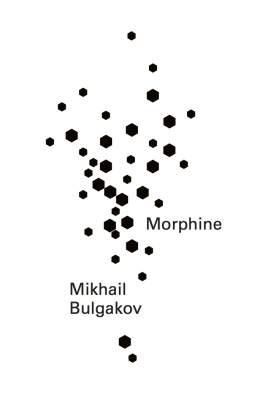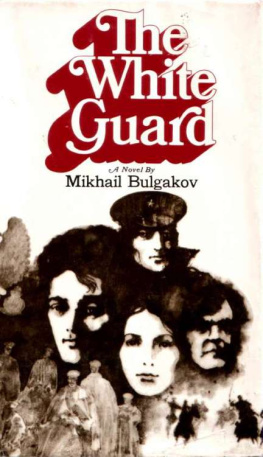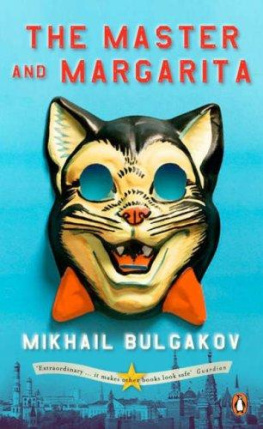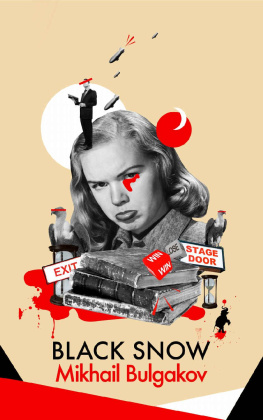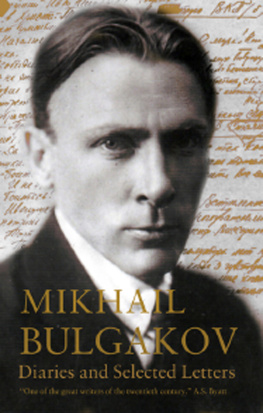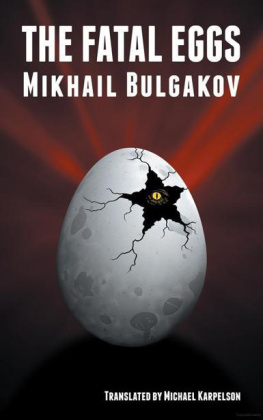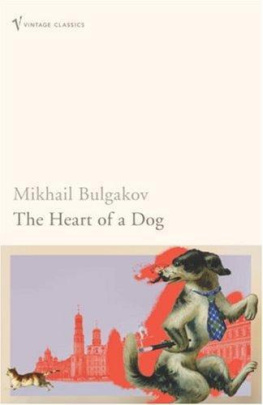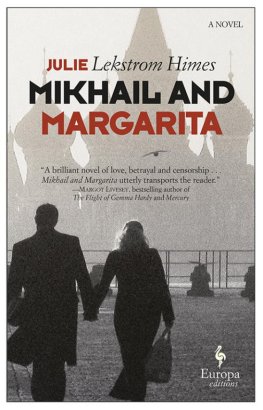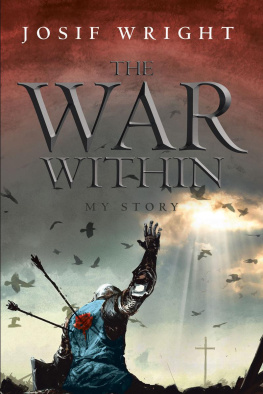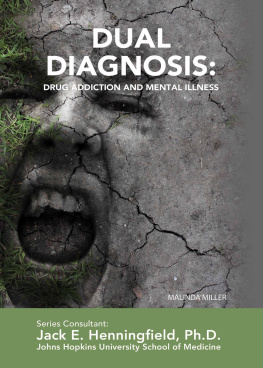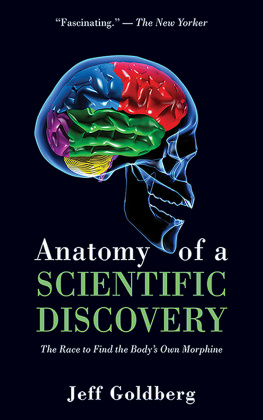I
Clever people have been pointing out for a longtime that happiness is like good health: when its there, you dont notice it.But when the years have passed, how you do re-member happiness, oh, how you doremember it!
As far as Im concerned, I, as has now become apparent,was happy in 1917, in the winter. An unforgettable, headlong year ofblizzards!
The incipient blizzard caught me up like a scrap of tornnewspaper and carried me from my remote district to a small provincial town.Whats so special, you might think, about a small provincial town? But ifsomeone has sat, like me, in snow in the winter, and in stern, sorry woods inthe summer, for a year and a half, without being away for a single day, ifsomeone has ripped open the postal wrapping on the previous weeks newspaperwith beating heart, the way a happy lover does a light-blue envelope, if someonehas travelled eighteen versts to a woman in labour in a sledge with horsesharnessed in single file, he, one must assume, will understand me.
A kerosene lamp is a very cosy thing, but Im in favour ofelectricity!
And now I saw them again, at last, seductive electriclamps! The little towns main street, well smoothed down by peasants sledges,the street in which, enchanting ones gaze, there hung a shop sign with boots onit, a golden pretzel, red flags and an image of a young man with insolent littlepiggy eyes and an utterly unnatural hairstyle, signifying that housed behind theglass doors was the local Basile, who for thirty kopeks would undertake to shaveyou at anytime, with the exception of the public holidays in which my fatherlandabounds.
To this day I recall with a tremor the Basiles napkins,napkins which persistently made me imagine the page in a German textbook on skindiseases, on which was depicted, with convincing clarity, a hard chancre on somecitizens chin.
But all the same, even those napkins cannot cloud mymemories!
At the crossroads stood a live policeman; dimly visible ina dusty shop window were iron trays, bearing crowded rows of fancy cakes withginger-coloured buttercream; hay covered the square; people walked, and rode,and conversed; on sale in a booth were the previous days Moscow paperscontaining stunning news; nearby, the Moscow trains exchanged whistles ofinvitation. In a word, this was civilization, Babylon, Nevsky Avenue.
And thats to say nothing of the hospital. It had asurgical department, therapeutic, infectious diseases, obstetric departments.There was an operating room at the hospital, and in it was a gleaming autoclave,there was the silver of taps, the tables revealed their intricate damps; cogs,screws. There was a senior doctor at the hospital, three house surgeons (apartfrom me), feldshers, midwives, nurses, a pharmacy and alaboratory. A laboratory, just think of it! Witha Zeiss microscope and a fine supply of dyes.
I would shudder and turn cold, I was crushed by myimpressions. Not a few days passed before I got used to the fact that thesingle-storey buildings of the hospital would blaze out in the December dusk, asif by command, with electric light.
It dazzled me. Water raged and thundered in the baths, andbegrimed wooden thermometers dived and floated about in them. All day in thechildrens-infectious-diseases department there were groans bursting out, therewas thin, pitiful crying and hoarse gurgling to be heard...
Nurses ran about, hurried around...
A heavy burden slipped from my soul. No longer did I beara fateful responsibility for anything that might happen in the world. I wasntto blame for a strangulated hernia, and I didnt shudder when a sledge arrivedbringing a woman with a transverse lie, I wasnt concerned with cases ofpurulent pleurisy requiring operations... For the first time I felt like ahuman being, whose degree of responsibility was limited by some sort offramework. Childbirth? If you please, over there theres a rather low building,and over there is the last window, curtained with white gauze. The obstetricianis there, likeable and fat, with a little ginger moustache and rather bald.Thats his business. Sledge, turn towards the window with the gauze! A compoundfracture thats the chief surgeon. Pneumonia? To Pavel Vladimirovich inthe therapeutic department.
Oh, the majestic machine of a large hospital in regulated,precisely oiled motion! Like a new screw made to measure in advance, I tooentered into the machinery and took on the childrens department. Bothdiphtheria and scarlatina absorbed me and took up my days. But only the days. Ibegan sleeping at night, because no longer was the ominous nocturnal knocking tobe heard beneath my windows, the knocking which might get me up and carry meaway into the darkness to danger and the inexorable.
In the evenings I started reading (about diphtheria andscarlatina in the first place, of course, and then, for some reason with strangeinterest, Fenimore Cooper) and was fully appreciative of the lamp over the desk,and of the grey coals on the tray with the samovar, and of the tea that grewcold, and of sleep after a sleepless year and a half...
Thus I was happy in the winter of 1917, having beentransferred from a remote district of blizzards to a small provincial town.
A verst wasapproximately equivalent to one kilometre. Trans.
A feldsher (from the GermanFeldscher, an army surgeon) was originally in the eighteenth century anassistant to a military surgeon in the field, but by the twentieth century hadbecome an essential element in Russias medical system, especially in ruralareas, as a trained assistant to a doctor. Trans.
II
A month flew by, and after it a second and athird, 1917 receded, and February 1918 flew off. I had grown accustomed to mynew position, and little by little began to forget my distant district. Thegreen lamp with the hissing kerosene, the loneliness, the snowdrifts faded frommy memory... Ingrate! I forgot my battle post where, alone, without anysupport, I had struggled with illnesses unaided, getting out of the most bizarresituations like a Fenimore Cooper hero.
Occasionally, its true, when I was going to bed with thepleasant thought of how in a moment I would fall asleep, certain scraps wouldfly by in my already darkening consciousness. A little green light, a twinklinglamp... the squeaking of a sledge... a short groan, then darkness, themuffled howling of the snowstorm in the fields... Then it would all tumbleaside and vanish...
I wonder whos sitting there now in my place?... Theremust be someone... A young doctor like me... well, I sat my time out.February, March, April... well, and lets say May and thats the endof my probation period. And so at the end of May I shall part with my brillianttown and return to Moscow. And if the Revolution catches me up on its wing I may have to travel some more... but in any event I shall never inmy life see my rural district again... Never... The capital... A clinic... Asphalt, lights...
Thats what I thought.
But all the same, its a good thing that I spent the timein that district... I became a courageous person... Im not afraid...What didnt I treat?! Yes, really? Eh?... I didnt treat any mental illness ... I mean... actually no, Im sorry... The agronomist drank himself tothe devil that time... And I treated him, rather unsuccessfully too...Delirium tremens... How does that differ from a mental illness? I ought toread some psychiatry... Oh, to hell with it... Sometime later on, inMoscow... But now, first and foremost, its paediatrics... and morepaediatrics... and in particular the drudgery that is prescription-writingfor children... Ugh, damn it... If a childs ten, then how much, letssay, pyramidon can it be given at a time? 0.1 or 0.15?... Ive forgotten. Andif the childs three?... Just paediatrics... and nothing more... enoughof those mind-boggling surprises! Farewell, my rural district!... But why isthe district coming to mind so insistently this evening?... The green light ... Ive settled my accounts with it for the rest of my life, havent I...Enough now... Sleep...
Next page
